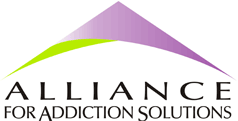How to Get Help For Yourself or Someone You Care About Who is Addicted
- Jan 7, 2020
- 4 min read
Are You Looking For Help For Yourself or Someone You Care About?
How the Alliance Can Provide Some of That Help
Whether you have already been in some kind of treatment or not, you will find pages on this site that pertain to your problem. For example, if opiates are a problem, read the page on the nutritional treatment for opiate addiction. Read about nutritional help for family members of addicts if that applies. You’ll find specific suggestions at the end of each section for books and other resources that will give even more details about the specific nutrients you’ll need for your personal recovery project.
Most conventional programs are now honest about the fact their relapse rates are between 90 and 100%. The list of Alliance members who provide some form of nutritional recovery treatment may be helpful. Before you review it or consider any other treatment options, though, read our advice below on how to find the most effective help.
Getting Nutritional Help In Recovery
Interviewing Treatment Practitioners or Programs
Residential Treatment:
Ask the staff of any program you’re considering about their meals and snacks. Are there healthful options? Can you bring in and refrigerate or freeze foods they don’t have? Do they belong to the Alliance?
Ask treatment providers if they will allow you to bring in sealed bottles of the amino acids and other nutrients recommended by specialists trained in the Alliance methods. Be sure to get their answers in writing before you pay for treatment. Confirm with the person you speak to that all levels of staff will honor their written approval for supplements and diet, including program counselors, medical director, and cook.
Will the program also email you permission in-advance to have a weekly phone appointment with a nutritional recovery professional?
If nutritionally-oriented, does the program or professional individualize amino acid supplement recommendations on a weekly basis based on a neurotransmitter deficiency symptom questionnaire?

Working With a Nutritional Recovery Coach
To ensure that you get the nutritional help you need, you could meet, either via Skype or in-person, with an addiction specialist who is a trained expert in the nutritional recovery process (for example, a certified graduate of The Academy for Addiction and Health Nutrition). She or he could set you up with a beginning nutrient recovery plan and weekly monitoring Skype appointments. A coach could also help you find a cooperative treatment program, either outpatient or residential, walk you through it, and support you afterward.
Alliance Standards for Nutritional Addiction Treatment and Education
See the Alliance member directory where members’ own descriptions of their practices and programs are listed. If their listing has an Alliance logo they have indicated to us that they follow the guidelines.
We ask all Alliance members to verify, in writing, that they or the program they direct or work in provides at least two nutritional essentials: (1) Individualized amino acid therapy (monitored at least weekly for the first twelve weeks), and (2) a pro-recovery diet in addition to whatever other programming they provide. We ask for a verification in writing every year. On all members’ descriptions of their practices or programs, look for the Alliance logo that identifies them as providing at least these two nutritional recovery essentials.
A Mother and Son Discover Nutritional Recovery In Time
When I convinced my 23-year-old son to go into an inpatient treatment program his alcoholism was so progressed that he was near death. I knew it was my last chance. I am a functional medicine practitioner, so I had Jimmy on methyl cobalamin (B-12), other B vitamins, whole food supplements and glandulars, and many other pills, plus the not-great but at least regular meals he got in the recovery program. Even with all this in the intensive residential program he was not feeling better and his cravings were strong. Then I found out from Alliance practitioners about the amino acids useful for treating the addicted brain.
Of all, it was the amino acids that really saved him. All the other nutritional improvements take time. We made some progress but it was too slow. The amino acids enabled him to have some quick mental and emotional stability. That was incredibly critical. His cravings were way diminished. He would probably not have succeeded if I hadn’t gone in there with the amino acids. A year later he is the only one from the group he started with who is still sober!
Dr. Jami Fitzgerald, D.C.
August, 2017
Jimmy’s mother
Personally, I’ve experienced the dramatic difference of incorporating nutritherapy as the primary aspect of my recovery program. While following the advice of the A.A. and related recovery fellowships is an important component, addressing the foundational nutritional and biochemical deficiencies has been indescribably effective. The qualitative difference I’ve experienced this time around in recovery is unparalleled to my prior attempts. The rapid (sometimes immediate) reduction in anxiety, depression, etc., has made the difference between simply “staying sober” and being in legitimate recovery. For me, a fundamental transformation in my neurochemical make-up was an absolute necessity for me to stay sober, to be happy, and to feel free. I am infinitely grateful that I was blessed with the opportunity to have these tools available to me. I owe them my life.”
Jimmy Fitzgerald, Age 24
Abused alcohol from age 16 to 23





































Comments